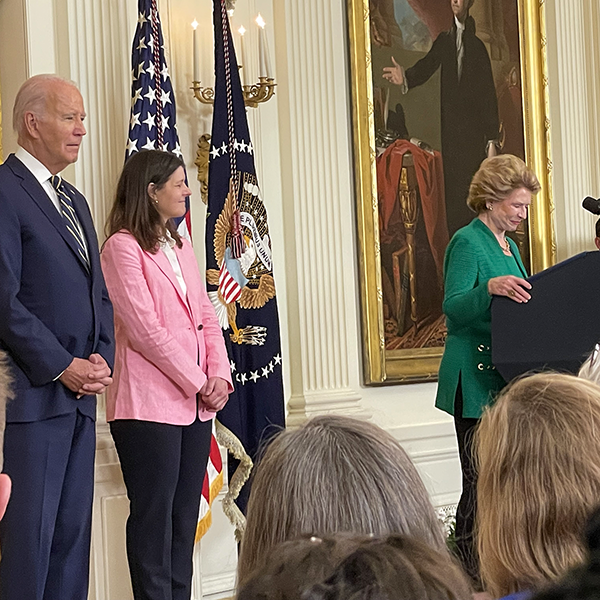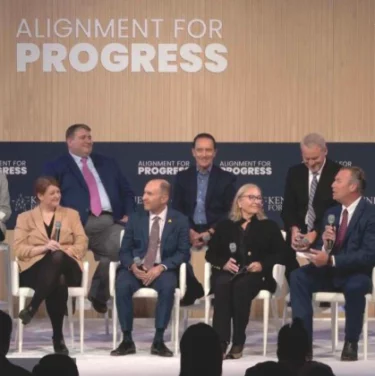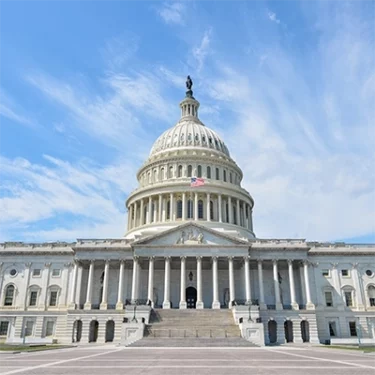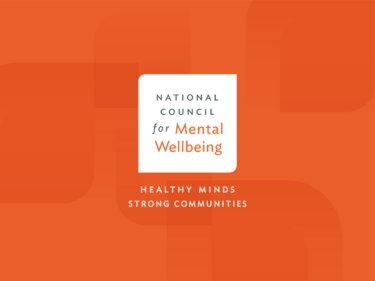Good work is its own reward.
But when people recognize that work, those rewards are magnified.
On July 25, I had the honor of attending an event in the East Room of the White House where President Biden discussed policy changes to improve coverage for mental health care by eliminating loopholes.
Then he shifted to a topic many National Council members know something about. The president offered a full-throated endorsement for Certified Community Behavioral Health Clinics (CCBHC).
“These clinics provide a range of services, including crisis support available 24 hours a day and seven days a week, and they serve anyone who needs care, regardless of ability to pay,” he said. “There are now more than 500 of these clinics in 46 states. We’ve added more than 140 during my administration, and we’re going to keep increasing them because we need more than 500.”
We already knew of the president’s support for mental health programs generally and CCBHCs specifically. Last year he signed the Bipartisan Safer Communities Act, which will provide billions for CCBHCs through federal programs over many years. And when he released his latest budget proposal earlier this year, he proposed making CCBHCs a permanent part of Medicaid.
But the White House event on July 25 was different: In a public event, he provided his most direct support yet for CCBHCs and for the work of the National Council and our amazing members.
I was so honored to be in the East Room to hear his remarks. Why? Because the National Council is responsible for CCBHCs. They are an idea we created, and they’ve been shepherded through Congress by Sen. Debbie Stabenow, former Sen. Roy Blunt and Rep. Doris Matsui. And the president was talking about them! CCBHCs have grown from an underutilized option for the delivery of care into a national movement capable of dramatically improving access to care.
So, where do we go from here?
Everyone deserves the right to be healthy, so we will take our cue from the president and continue the work we started in 2017 until everyone has access to a CCBHC. Like the president, we know CCBHCs are a sound investment. We know they lead to better health outcomes. We know they lower barriers to access, improve our nation’s crisis care infrastructure and create jobs.
CCBHCs also help communities address the challenges of the overdose crisis, providing access to certain forms of substance use disorder treatment at vastly higher rates than non-CCBHCs — 82% of CCBHCs offer two or more forms of medication-assisted treatment, compared to only 56% of substance use clinics nationwide.
The 988 Crisis & Suicide Lifeline, which just observed its one-year anniversary, relies in part on CCBHCs. The clinics are becoming an important source of support to the Lifeline because of their potential to support crisis care, connect people to care post-crisis and engage people in outpatient treatment to manage their health and avoid a future crisis.
CCBHCs are subject to federal and state requirements that hold them accountable for expanding services and staffing to reach everyone in need of care. That’s why they also create jobs. As a result of becoming a CCBHC, clinics created an estimated 11,000 new behavioral health jobs, according to a 2022 report.
The president’s endorsement of CCBHCs is a clear signal that our work to develop and expand this progressive model of care has proved invaluable to people and communities.
But we need to finish what we started in 2017, so everyone has access to a CCBHC.




